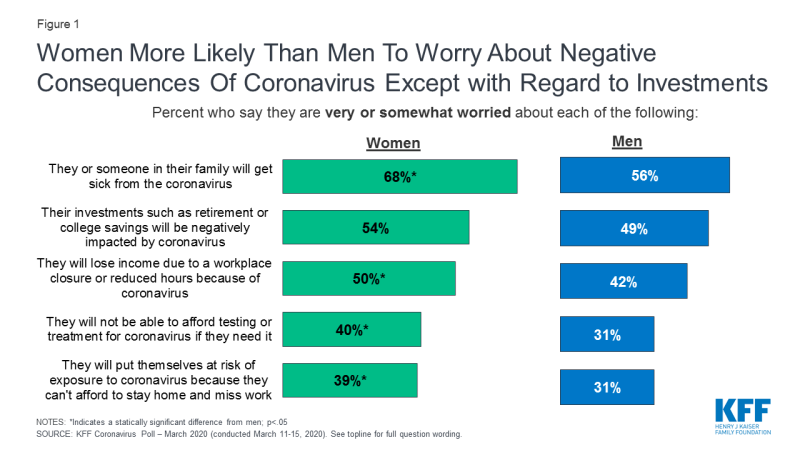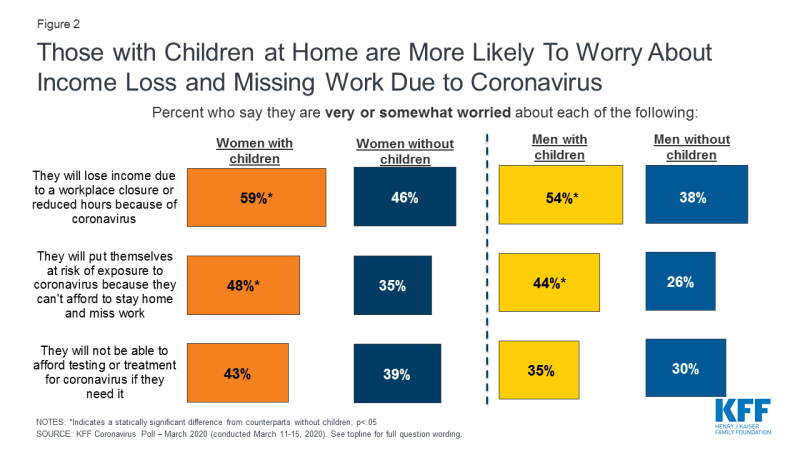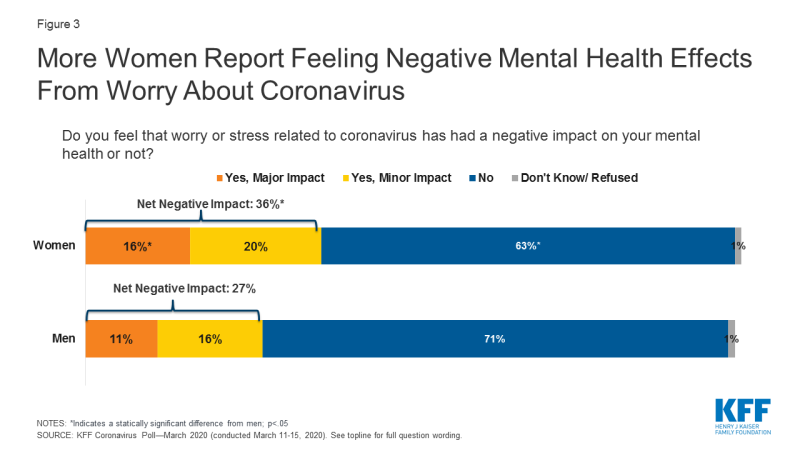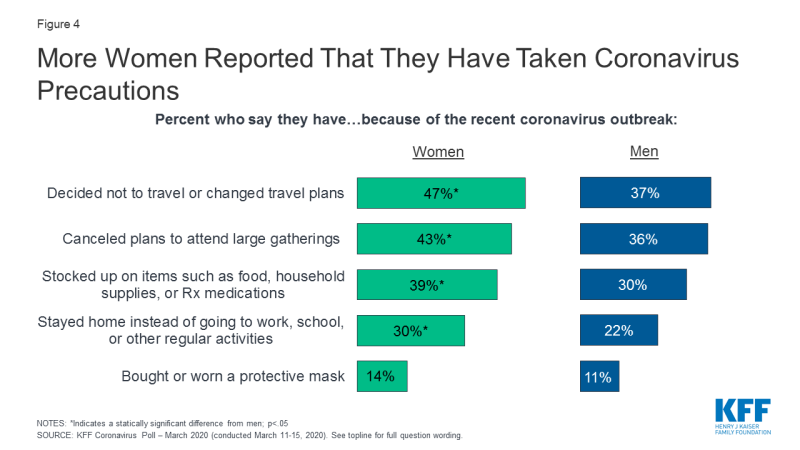Coronavirus: A Look at Gender Differences in Awareness and Actions
Introduction
The emergence of the novel coronavirus and COVID-19, the illness it causes, has impacted the lives of nearly everyone. Without practically any advance notice or planning, schools have closed in many states, employees have been asked to work from home, those who cannot work from home face potential exposure to the coronavirus, reduced work hours, or job loss. For many women, particularly those with children at home, the coronavirus pandemic has given new urgency to many of the challenges that they have long been confronting. Women are more likely to be the primary caretakers and in charge of health care responsibilities in their families. This brief presents additional analysis of a recent KFF Coronavirus Poll, conducted between March 11 and 15, 2020 and finds larger shares of women are worrying about the negative consequences of the coronavirus and taking greater precautions than men.
More Women than Men Worry about Getting Sick and Losing Income
A larger share of women compared to men worry that they or someone in their family will get sick from the coronavirus (68% vs. 56%, respectively) and worry about losing income due to a workplace closure or reduced hours because of COVID-19 (50% vs. 42%, respectively) (Figure 1). A larger share of women compared to men also worry they would put themselves at risk of exposure to coronavirus because they can’t afford to stay home and miss work (39% and 31%, respectively). A larger share of women who were surveyed reported being part-time workers than men (13% v. 9%). The new law, Families First Coronavirus Response Act, addresses cost sharing for COVID-19 testing, but treatment costs remain a concern. A larger share of women (40%) compared to men (31%) worry that they will not be able to afford testing or treatment for coronavirus if they need it.

Figure 1: Women More Likely Than Men To Worry About Negative Consequences Of Coronavirus Except with Regard to Investments
Men and Women with Children More Worried about Consequences of Coronavirus
A larger share of women and men with children compared to women and men without children said they were worried about losing income because of COVID-19 and of being exposed to COVID-19 because they can’t stay home from work (Figure 2). Since the survey was conducted, many daycares, schools, and workplaces have closed, and parents may have to stay home with their children and simultaneously work from home or find other arrangements for their children if they are still working.

Figure 2: Those with Children at Home are More Likely To Worry About Income Loss and Missing Work Due to Coronavirus
Women more Likely than Men to Report Mental Health Effects from Worrying about Coronavirus
A larger share of women (16%) compared to men (11%) reported that they feel that worry or stress related to COVID-19 has had a major negative impact on their mental health. Nearly four in ten women (36%) and three in ten men (27%) feel that worry or stress related to coronavirus has had some impact on their mental health (Figure 3). Women, in general, are more likely to be diagnosed with anxiety and depression compared to men. For both men and women, social distancing could also add another level of social isolation, depression, and anxiety on top of worrying about the negative consequences of the coronavirus.
Women Have Been More Proactive in Response to the COVID-19 Outbreak
While large shares of women and men are aware of the public health recommendations by the CDC, WHO, and state and local government officials, such as frequent hand washing and staying home if you are feeling sick, a larger share of women report taking precautionary measures. Larger shares of women compared to men say they decided not to travel or changed travel plans (47% vs. 37%); reported canceling plans to attend large gatherings such as concerts or sporting events (43% vs. 36%); say they stocked up on items such as food, household supplies, or prescription medications (39% vs. 30%); and say they stayed home instead of going to work, school, or other regular activities (30% vs. 22%) (Figure 4).
Conclusion
The coronavirus pandemic has upended lives across the world. The findings of the survey reinforce much of what we have known about the impact that balancing multiple responsibilities – often without a safety net — has on women. The COVID-19 pandemic has put a spotlight on the gaps in workplace supports, such as paid sick and family leave, as well as the lack of affordable childcare and long-term care supports. In the absence of a long-term policy response, these issues will persist long after the urgency of the pandemic has passed.


